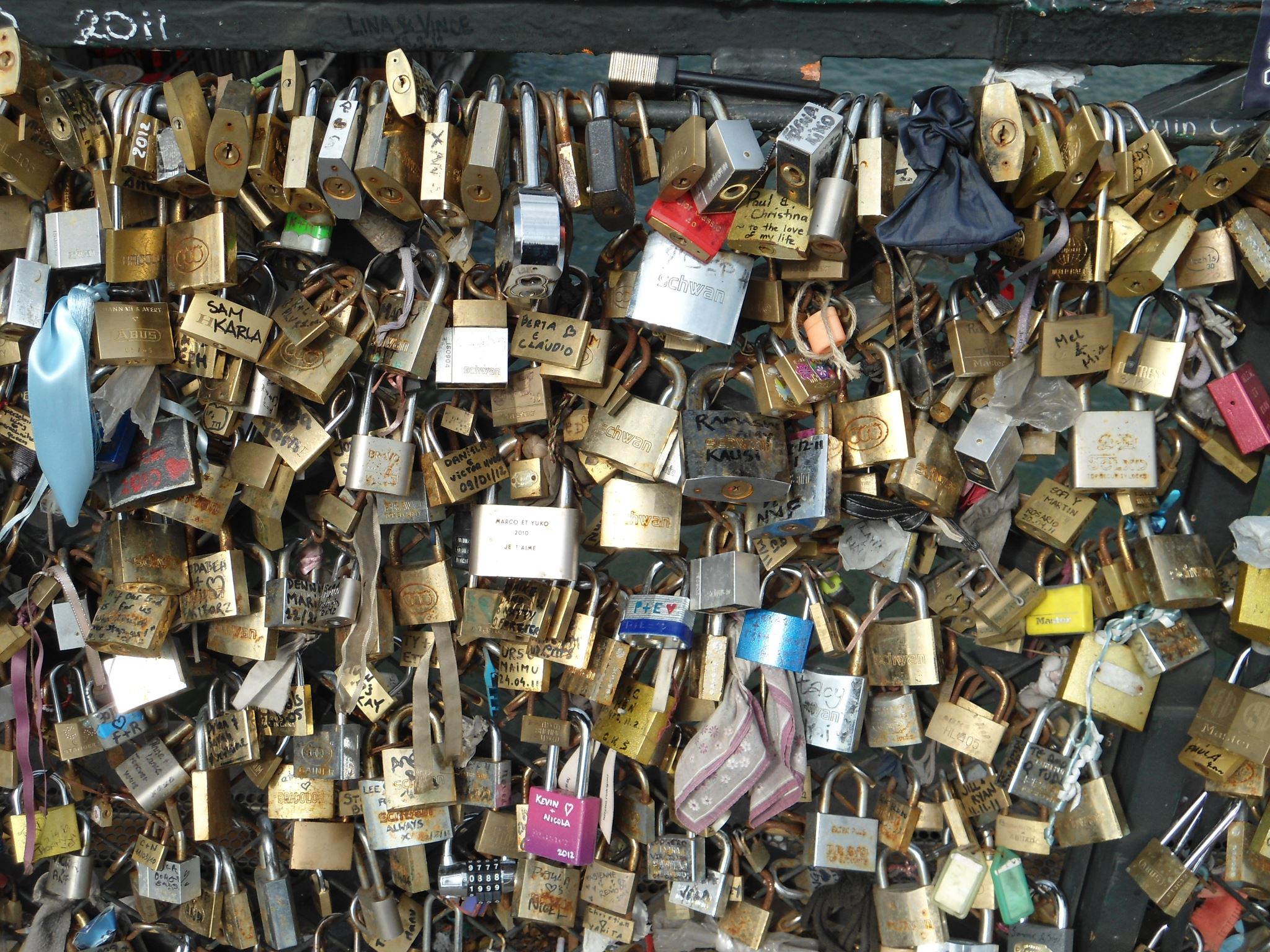When I first heard that the "love locks" on the Pont des Arts in Paris were being removed, I thought very little of it. I have no lock on that bridge and I was lucky to see it in its lock-loaded glory recently.
Initially, I thought about how maybe it was a good thing that the locks were due to be cut from the structure. On one hand, they represent a moment in time in many lives, but on the other, many of the locks probably represent something that no longer exists. The removal is practical - imagine the stress 45 tons of locks must place on the unseen supports keeping the bridge intact.
Then I thought about how many of those locks might still be a physical representation of love and hope for those relationships that have survived, and I felt a small pang of loss for those relationships losing something emblematic.
On the radio this morning, there was a brief audio montage of people's stories about leaving their locks behind. There were the honeymooners who wanted to one day show their lock to their children, one half of a young couple whose lock now serves as a wistful reminder of a love that didn't last, and even a divorcee who wrote her own name on a lock and immediately regretted adding weight to the bridge.
The one that really struck me was the man whose late wife always wanted to go to Paris but sadly lost a battle with brain cancer before she could ever visit. After her death he went to the Pont des Arts and added a lock inscribed with their names and "RIP," a final tribute to his francophile wife.
He left his wedding ring behind on the lock, too.
